Am I a candidate? Technique After surgery Why choose us Reviews Our prices
 Corneal Transplantation (penetrating keratoplasty) is a microsurgery aimed at improving eyesight in patients with various corneal pathologies. The procedure is performed to restore anatomic form and functions of the cornea, eliminate its congenital or acquired defects. Currently, keratoplasty is one of the most performed transplantation operations. Every year over ten thousand operations of this kind are performed in the world.
Corneal Transplantation (penetrating keratoplasty) is a microsurgery aimed at improving eyesight in patients with various corneal pathologies. The procedure is performed to restore anatomic form and functions of the cornea, eliminate its congenital or acquired defects. Currently, keratoplasty is one of the most performed transplantation operations. Every year over ten thousand operations of this kind are performed in the world.
During the procedure a defected part of the host cornea is fully or partially replaced with a donor cornea. Depending on the pathology a transplant can replace corneal tissues full-depth and be implanted on the anterior corneal tissue layers or in its innermost layer.
Who is a good candidate for Corneal Transplantation?
According to the statistics of all the eye disorders 25% are corneal pathologies. Visual acuity disorders related to the corneal pathologies in most cases are irreversible and can’t be corrected with eye glasses or contact lenses. For this reason, kertoplasty is actually the only efficient way of treating patients with cloudy cornea or corneal spherical aberration. Corneal Transplantation is performed when the following conditions occur:
- Keratoconus and keratoglobus;
- Avascular corneal leucoma (it is developed as corneal keratitis and ulcer complications, and as a result of chemical or thermal burns);
- Posttraumatic corneal scarring (including scarring after the surgery);
- Congenital or acquired corneal dystrophies.
Before any surgical interference with corneal transplantation the patients are thoroughly examined to identify any contradictions, risk factors and to predict the results of the surgery. In case such risk factors as entropion, ectropion, blepharitis and bacterial keratitis are found, they must be eliminated before the procedure of keratoplasty.
During the Corneal Transplantation
 The operation is performed as a one-day surgery. The type of anesthesia depends on many factors (age, type of the pathology, general health condition of the patient etc.). Both local, and general anesthesia may be used.
The operation is performed as a one-day surgery. The type of anesthesia depends on many factors (age, type of the pathology, general health condition of the patient etc.). Both local, and general anesthesia may be used.
A lid speculum will be used to keep your eyelids open. The surgeon will determine the size of the donor tissue needed. When the donor flap of the suitable size is ready, defected tissues are removed and replaced by a corneal transplant the size of which perfectly fits to the removed flap.
If indicated, at the same time the doctor may perform anterior segment reconstruction (cataract extraction, IOL implantation or replacement, synechiae elimination, iris plastics etc.). When everything is done the transplant is sutured into place (the material for the stitches is thinner than a human hair). A tight shield is placed over the eye. Special protective contact lenses may also be used. At the same day the patient may return home.
Recovering from a Cornea Transplant
Total cornea transplant recovery time is relatively long and can be up to 9-12 months and over. It’s explained by a complex structure of the ocular surface. The stitches are usually removed in 6 months (or later) after the surgery. To avoid post-operative cornea inflammation and reduce the risk of transplant rejection, glucocorticoids and antimicrobial medications in the form of eye drops are prescribed (for 2 months after the operation). During the recovery period it’s highly recommended to protect your eyes from mechanical injuries and to avoid hard physical work.
Potential postoperative complications
As with any surgical interference there are certain risks of corneal transplantation (bleeding, sutures failure, contamination, anesthesia-related complications).
Postoperative complications are most often associated with transplant rejection, rarely, persistent intraocular pressure increase may be observed as well as macular edema, astigmatism etc.
Benefits of Keratoplasty with the Moscow Eye Clinic
Before the operation our patients are thoroughly examined with the use of the most advanced diagnostic equipment by the leading world manufacturers. Our Clinic has all the necessary equipment for corneal transplantation and our own bank of biotransplants. In 2014 doctors in the Moscow Eye Clinic performed 21 corneal transplantations and it is the highest rate among private ophthalmological centers in Russia.
World-class specialists work in the “Moscow Eye Clinic”. Penetrating keratoplasty is one of the priority areas. Professor Slominsky Alexey Yurievich works in our clinic. He is one of the well-recognized specialists in corneal pathologies and an acknowledged leader in penetrating corneal transplantation in patients with keratoconus. Yuri Borisovitch is the author of the monograph devoted to keratoconus. Professor Slonimsky Y.B. is a member of the Russian Society of Ophthalmologists. Among his colleagues Yuri Borisovitch is an acknowledged authority in the area of serious corneal pathologies. The operations are also performed by the surgeon of the highest category and head doctor of our clinic Fomenko Natalia Ivanovna.
Individual approach and attention to every patient is a guaranty of successful treatment in the Moscow Eye Clinic. We care about our patients and we are ready to provide our help seven days a week from 9 a.m. to 9 p.m. For our patients’ comfort we have an in-patient facility (including day patient facility).
Reviews of our patient
Translation from Russian: "We had gone to the Moscow Eye Clinic in order to change corneal mom. In our town were problems with it. Dr.Tsevtkov Sergei Alexandrovitch has received us: here is very good attitude and the operations were successful. Hope that mom will see."
Cost of treatment
The price for keratoplasty is defined by the extent of surgical intervention, the requirement to use general anesthesia etc. The cost of penetrating keratoplasty in our clinic is 70, 000 rubles for the operation on one eye. If the anterior segment reconstruction is required the cost may be increased. The cost of biomaterial is not included in the cost of the operation. The price for biomaterial is 75, 000 rubles.

If you have any question, you may call us in Moscow at 8 (800) 777-38 81 and (499) 322-36-36 or ask our specialists with the help of a follow-up form on our web-site; you can also refer to the section “Price” on our web-site.


 Semenovskaya
Semenovskaya 










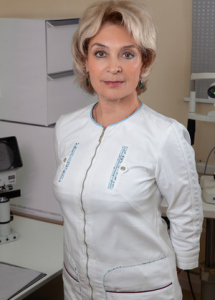
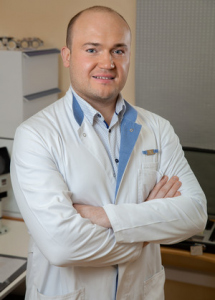
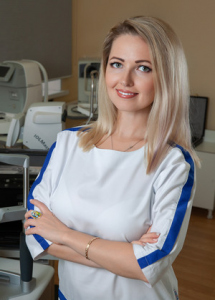
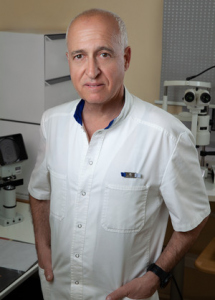
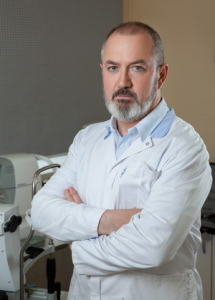
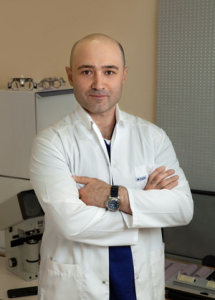

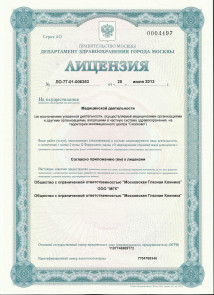
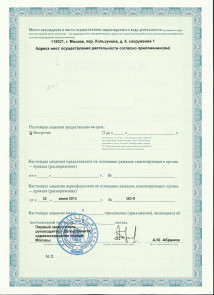
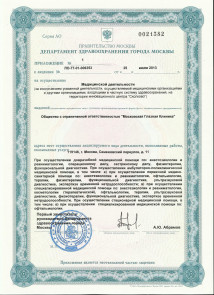
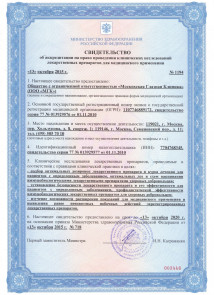
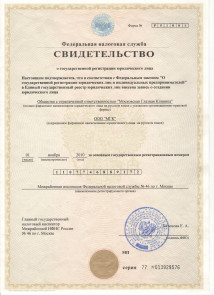
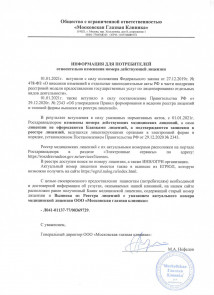

_214x295_ead.jpg)